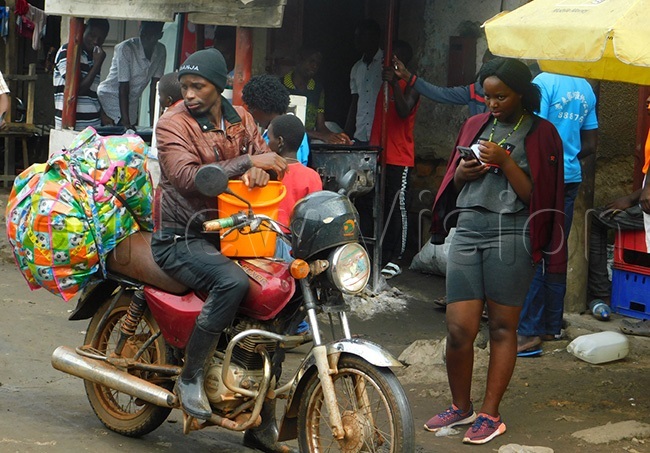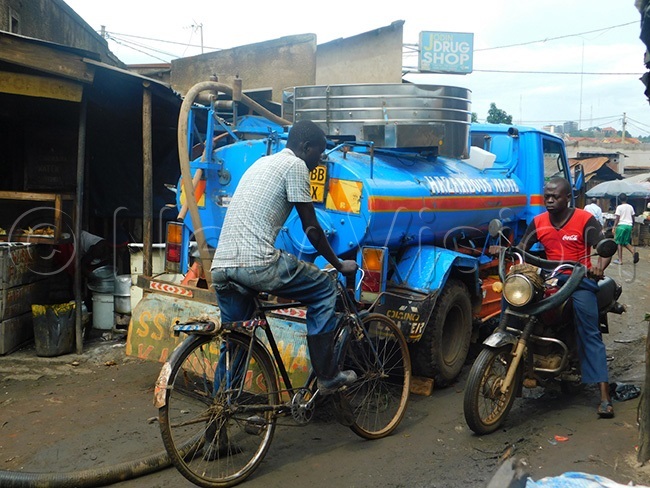COVID-19: Kyebando slum residents survive on one meal a day
May 08, 2020
“This is the kind of food my mother used to make in Nagongera village in Eastern Uganda,” remarks Steven Wandera as he navigates the stew for the meat. “With this, you can survive on a single meal per day.”

COVID-19 | SURVIVAL
Preparing the mountain of ugali (cassava flour bread) takes the seasoned cook Faith a pair of pestles. While at it, beads of sweat mat her forehead as she scoops eight kg of flour before turning it over and mingling one steaming mountain.
A generous portion of this food is served steam hot with a small dish of thick gravy. This costs less than a dollar in Kyebando slum on the outskirts of Kampala City where most residents rent bedsit homes without the luxury of kitchens or washrooms.
"The mingling does not start until the water boils, then I pour flour weighing more than 8kg," reveals an attendant only identified as Faith.
"Earlier on, we smoke beef, fish, and chicken. Either of these is added in thick groundnut stew. For between sh2, 000 -sh3, 000 one risks biting a finger while eating."
The nook of six seats fills to capacity with diners between 12:00 pm and 3: 00 pm.
 Life goes on in Kyebando during the lockdown
Life goes on in Kyebando during the lockdown
Keeping distance in this Covid19 lockdown makes diners dine out of the "box." Others make themselves comfortable on stones, bricks, and logs across the path.
The verbal menu is short. Beans come cheap. Very often the diet is balanced by some vegetables, a slab of potatoes or yams.
Without sophistication of knives, aprons, and forks, muscled men who are building the changing face of Kampala City fold the sleeves of their shirts, wash their hands before scaling the heap of ugali and swishing away the hot stew.
Appetites are whetted by hot pepper that leaves eyes tearing.
Drinking water is on standby. With practiced expertise, a diner chops off a portion and rolls it into a ball on his palms. He thumbs a hole and fills it with gravy. It is then tossed it the mouth where it swiftly vanishes.

There is no conversation. The only audible sound is that of lips sucking soup from the bones punctuated by audible sighs of relief. These diners are migrants from rural areas to urban Kampala where they need every morsel to manage to do odd jobs and send money to sustain their families.
"This is the kind of food my mother used to make in Nagongera village in Eastern Uganda," remarks Steven Wandera as he navigates the stew for the meat. "With this, you can survive on a single meal per day."
Like his counterparts, after between 20-40 minutes, he is seen walking away wearing a face split into a smile of satisfaction. He picks his teeth and converses coronavirus updates and how the lockdown has been extended.
"I have been cohabiting with my spouse for more than seven years," revealed Joseph Eguba. "She was threatening to walk out on me if I do not wed her this year. Thank God for sending us this coronavirus that has outlawed gatherings. A God-sent excuse …"
Life in the area has never been the same since the lockdown measures were put in place.
